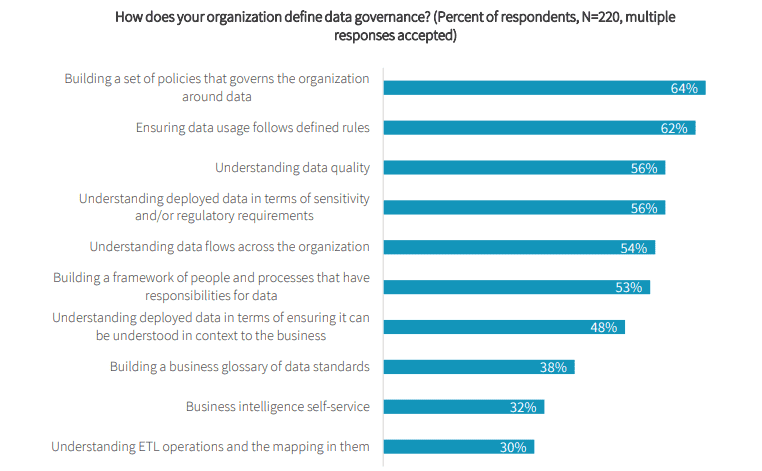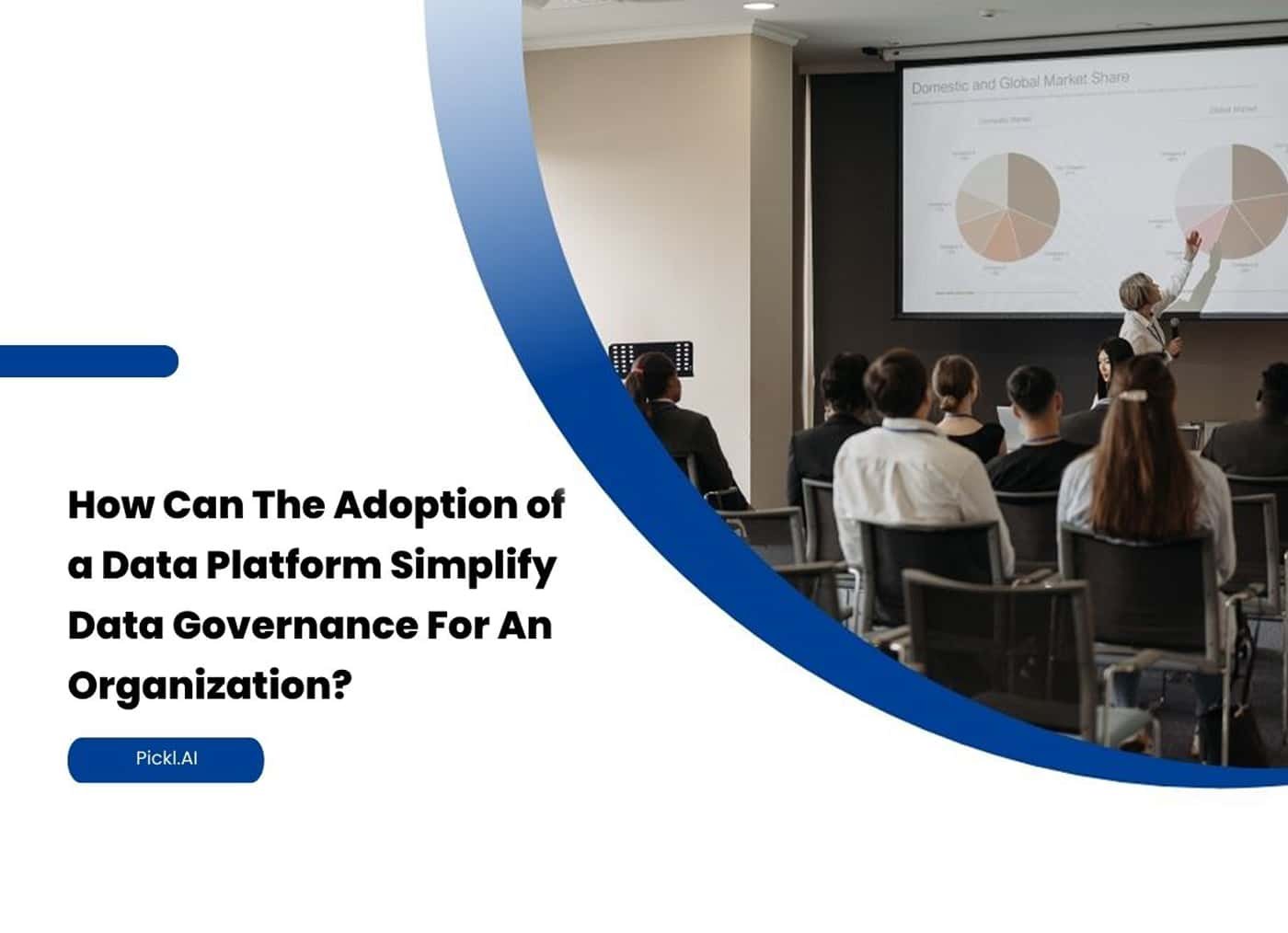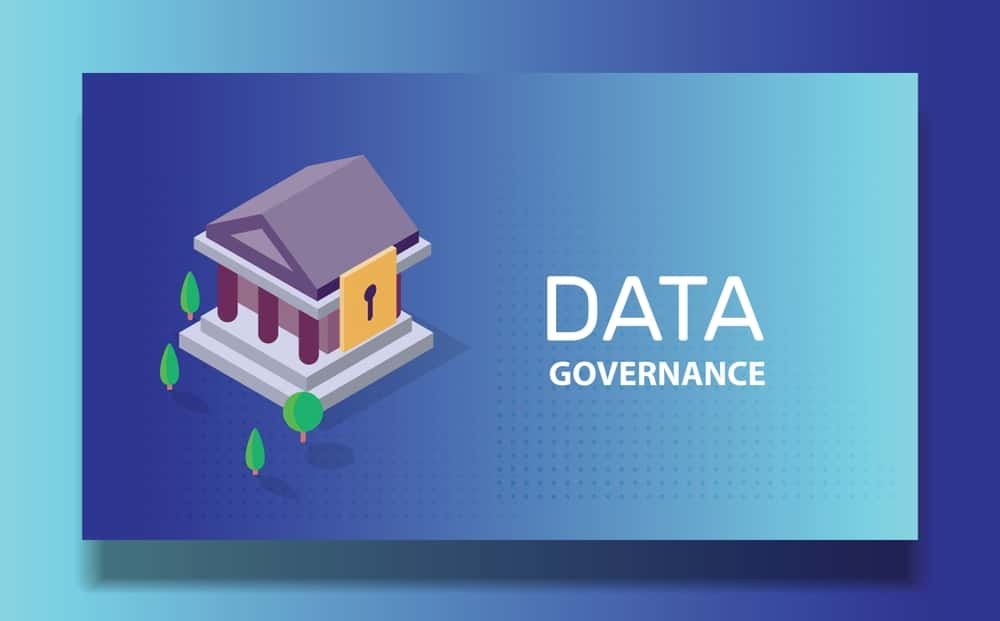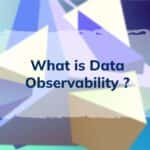As the world slowly drifts towards data-driven decision-making, the relevance of quality data sets becomes even more significant. While most of this data is stored in a repository or on a cloud-based platform, the system’s vulnerability cannot be undermined. Falling into the wrong hands can lead to the illicit use of this data. Hence, adopting a Data Platform that assures complete data security and governance for an organization becomes paramount. In this blog, we are going to discuss more on What are Data platforms & Data Governance.
Key Highlights
As our dependency on data increases, so does the need to have defined governance policies also rises. As per the State of Governance and Empowerment report (2021), the conventional reason to implement Data Governance are:
- Analytics (35%)
- Regulatory compliance (34%)
- Better decision-making (27%)
- However, recent research has highlighted the following additional factors that increase the reliance on Data Governance
- Improved data security (48%)
- Data quality (45%)

Ref: https://www.insightsforprofessionals.com/it/storage/2021-state-of-data-governance-and-empowerment/download
What is Data Governance and Data Platform?
With the exponential growth of data and increasing complexities of the ecosystem, organizations face the challenge of ensuring data security and compliance with regulations. Here comes the role of Data Governance. It provides a structured framework for managing the data. Seated Data Governance platforms provide essential tools to help the organization implement and enforce Data Governance policies.
Data Governance
The strategic management of data involves different processes and technologies to ensure that the data is reliable and is accessed responsibly. Simply put, Data Governance is the collection of different policies, standards, and regulations that ensures effective use of the available data, thus enabling the organization to achieve its goals. It also incorporates the formulation of different processes and strategies that ensure the quality and security of data. In addition, it also defines the framework wherein it is decided what action needs to be taken on certain data.
Hence the significance of a well-defined governance strategy becomes fundamental for any organization. And so, a company dealing in Big Data Analysis needs to follow stringent Data Governance policies.
For example, if you are running a medical facility, then your Data Governance strategy includes the privacy of the patient’s health care data.
The key objective of Data Governance is to provide the foundation for data-driven decision-making. Thus reducing the risk and misuse of data.
Relying on a credible Data Governance platform is paramount to seamlessly implementing Data Governance policies. These platforms are centralized and designed to manage data practices, facilitate collaboration among different stakeholders, and automate the Data Governance workflow.
Data Governance Framework
A typical Data Governance platform should include the following:
Data Standards
A documented record of business glossaries, their taxonomies, and dictionaries must be created. It clears any ambiguines that may otherwise crop up. It enables the stakeholders to assess the data architecture. Additionally, the team can innovate and automate its processes.
Data Processes and Organizational Structure
Data Governance access controls enable the end-users to see how data processing works inside an organization. It can include data refresh cadences, PII limitations, regulatory data regulations, or even data access.
Tools and Technologies
It includes tools like metadata management systems that support data processes and standards. It ensures the safe storage of data. Moreover, it can also be merged with the self-service Data Analytics Tools, thus, allowing Analysts to query and analyze various data sets for reporting and innovation initiatives.
Benefits of Data-Driven Governance
Accurate Decision-making
With the implementation of Data Governance, organizations can ensure better decision-making. It is applicable in the case of the process as well as the decisions. When the data is of better quality it gives accurate insights. Hence the decisions based on these data sets will ensure accuracy and precision.
Enhances Transparency
Transparency while documenting data is important. It allows the organizations to understand when the data was collected and when it was added to the system and other information. This establishes data accountability. Thus reducing the risk of misuse of data.
Profitable Outcomes
Another benefit of Data Governance is that it ensures effective decision-making and productivity. For example, a well-run company that manufactures spare parts ensures that its production line machinery undergoes timely inspections, maintenance, repair and upgrade as required. The same applies to data.
Improved Data Integration and Collaboration
Since Data Governance establishes data standards and definitions, it promotes data sharing and exchange among business units. It also fosters collaboration amongst different stakeholders, thus facilitating communication and data sharing. All these eventually work together to ensure enhanced decision-making and improved performance.
Increased Data Value and Monetization Opportunities
In addition to the benefits mentioned above, Data Governance also helps maximize
the value of the data sets by ensuring accuracy, reliability, and consistency. Reliability and high-quality data help derive accurate insights to uncover new business opportunities.
Components of a Data Governance Framework
A typical Data Governance framework consists of the following:
- Policies
- Rules
- Processes
- Organizational structures
- Technologies
It also encompasses Data Governance software that will be used to automate the process and manage the governance program. Although Data Governance is not mandatory, it works with data quality and Master Data Management Tools.
What is a Data Platform, and How is it Useful for Enterprise Management?
It is a comprehensive framework that includes different tools, processes and technologies designed to manage the data effectively. A Data Platform provides a centralized and integrated approach to handling data from different sources. The Data Platform can be:
- On-premises
- Cloud-based
- Hybrid
Data Platforms are incredibly useful for enterprise management in several ways:

Ref: https://www.splunk.com/content/dam/splunk2/images/data-insider/data-platform/data-platform-2.svg
Integration and Consolidation
These platforms help in organizing and integrating data from different sources. This enables organizations to have comprehensive data, thus facilitating data-driven decision-making and reducing data silos.
Processing and Analytics
These platforms are laced with technologies that assist in processing and analyzing large volumes of data in real-time. Thus allowing the organizations to gauge the patterns and unfold hidden opportunities.
Governance and Security
Security of data is paramount. Data Platforms are loaded with security features that ensure data is managed, compliant, secure, and responsible. With the help of Data Governance tools, organizations can create Data Governance policy and processes, ensures a higher quality of data, and security features including encryption of data and data masking.
Scalability and Flexibility
From the above discussions, we can conclude that Data Platforms play a significant role in managing volumes of data. Hence, every organization should check its scalability and flexibility before choosing a Data Platform. Cloud-based platforms have better flexibility, allowing organizations to scale up or down their data processing requirements.
Collaboration and Sharing
Data Platforms facilitate data collaboration and sharing among different stakeholders within an organization. It enables data sharing, lineage tracking, and cataloging, making it easier for business users, Data Scientists, and Analysts to collaborate, share insights, and derive value from data.
Improved Operational Efficiency
Data Platforms streamline data management processes and automate data ingestion, processing, and analytics. Thus, reducing manual effort and improving operational efficiency. This allows organizations to optimize their data workflows, reduce data processing time, and make faster and more informed decisions.
Wrapping it up !!!
Data Platforms are essential for modern enterprise management as they provide a comprehensive and integrated approach to managing data effectively. From data integration and consolidation to data processing and analytics, Data Governance offers all the features that make it integral for any organization.
FAQs
1. What is Data Management?
It is the process of collecting data, and keeping it secure and accessible to authorized users.
2. How Can The Adoption Of a Data Platform Simplify Data Governance For An Organization?
The primary reason for organizations to switch to Data Platforms is to ensure a streamlined Data Governance and management process. These platforms are equipped with robust security frameworks and access control features, which makes it easier for the user to use the information without breaching the security frameworks. Organizations can use the Data Platform to have centralized ownership that maintains data security.
3. How Can Data Platforms Help Improve Data Governance?
Data Platforms play a significant role in enhancing the overall management of data, its integrity, and scalability. These platforms are designed to provide a secure framework to access the data while leveraging the flexibility that makes the data secure and safe.
4. How Do Data Platforms Help Businesses With Their Data Governance Needs?
Data Platforms provide a safe and secure framework to store and manage the data while allowing easy access to the same to authorized authorities.
5. What are the 3 key elements of good Data Governance?
The 3 key elements of good Data Governance are:
Data Owners, Data Stewards, Data Custodians
All these three elements work together to create policies to govern data.
6. What Are Some of The Popular Data Governance Tools?
Some of the popular Data Governance tools that one can access are:
- Alation Data Catalog
- Informatica
- OvalEdge
- Atlan
- Data 360govern
There are several other platforms offering Data Governance. However, it is recommended to have a closer look at the features and costs before narrowing down the options.










